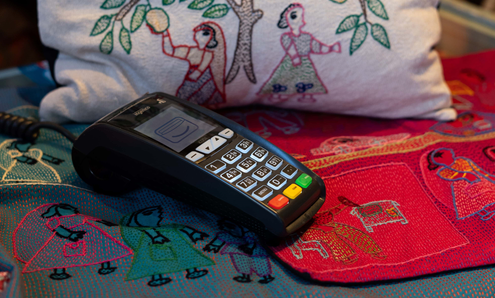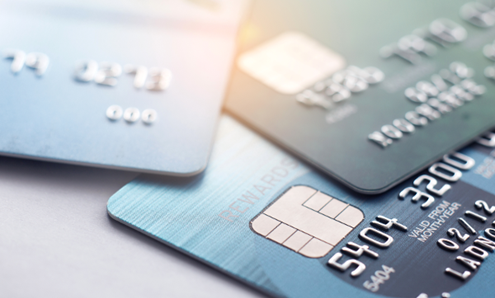The spending limit using contactless was upped from £30 to £45 last April, and it’s set to rise once more today, 15th October, this time more than double to £100 per transaction. So, with that in mind, in this article we’ll cover:
- Why the cap is increasing,
- When the new limit comes into play,
- What it means for your business,
- How it’ll impact your customers, and
- How to update your terminal.
Why is the contactless cap increasing?
The simple answer is because consumers want it to. The demand for contactless payments is sky high, and the increase from £30 to £40 put a spotlight on its popularity:
- Contactless spending reached a new record high in August 2020 reaching a whopping £8.4 billion,
- There was an increase of 16% in contactless spending in October 2020 compared to 2019, and
- Contactless payments account for nearly half of all transactions.
Not only that, but the government hopes by upping the limit and allowing consumers to spend more using their preferred payment method, they’ll go some way to boosting retail and economic growth post-COVID.
But why do consumers love it so much?
The contactless craze
As we said, contactless was popular even before we knew what coronavirus was, but following the outbreak of the pandemic and widespread fear over transmission, its usage rose sharply and not just because consumers felt safer using it but because many businesses actively encouraged shoppers to pay touch-free.
What started off as a risk-aversive tactic has turned into a habit, and consumers have come to enjoy the convenience and speed on offer with contactless so much that it now wears the crown as payment method of choice over traditional chip & pin card payments and particularly cash.
Good to know: Following Britain’s exit from the EU we’re no longer bound by regulations setting the limit at £45, which has allowed this further increase.
Could this be curtains for cash?
The cap on contactless transactions means chip and pin still remains widely used for larger purchases, while its predecessor cash is falling further and further out of favour.
In fact, a recent report from the BBC suggests cash refusal is “creeping into the UK economy” and experts predict we could become a cashless society in years to come.
While it’s hard to imagine a world without cash, and it remains a mainstay for vulnerable and elderly consumers, the message is clear, the payments landscape is changing and businesses looking to stay competitive need to broaden their payments horizons to keep up.
When will the new limit come into play?
The national rollout of the new £100 limit will come into play on October 15th, 2021. However, changes on the ground are likely to materialise in a staggered fashion as businesses will need time to update their systems, and how long this takes will vary from retailer to retailer.
It’s also worth noting that regulators have advised it’s the prerogative of individual businesses as to whether or not they decide to accept and enforce the new higher limit.
If you’re unsure come the 15th of October, check with the retailer, ask in-store, or keep your eyes peeled for prompts on their card terminal.
What does it mean for my business?
All in all, the news of a further increase to the contactless limit spells good times ahead for British businesses. Not convinced? Here are four ways it could benefit your bottom lines.
Friction-free spending
Studies conducted since the introduction of contactless have shown the convenience it offers leads to friction-free spending, aka, boosted basket sizes.
Consumers needn’t worry about how much cash they’re carrying when paying on card, previously a barrier to buying, and the higher limit on contactless could elicit additional spending and in turn increase revenue.
Speedier checkouts
The beauty of contactless is it’s a super-fast way to pay, all consumers need to do is waft their plastic in the vicinity of your machine and the job’s done.
That means for businesses the entire process of taking payments can be sped up exponentially, allowing them to serve more customers in a day and freeing up time for other business benefiting behaviours.
Fun fact: The average time it takes to complete a contactless transaction is 12.5 seconds compared to 26.7 for chip & pin and 33.7 for cash, slashing them by over a half and nearly two-thirds respectively.
Boosted customer loyalty
Since its inception, multiple studies have found businesses that offer contactless payments benefit from significant increases in customer loyalty.
Consumers naturally gravitate towards businesses that are progressive and one step ahead of the rest, so it’s no surprise really that contactless can have this impact and it naturally follows that businesses who offer the new higher limit are likely to reap the rewards.
We don’t need to tell you the value of loyal customers; they’re likely to spend more with you, tell their friends and family about you, and boost your revenue. Win-win-win.
Superior customer experience
It’s business 101 you don’t leave your customers waiting and do everything in your power to offer a smooth, streamlined, and flawless experience with your business from start to finish. Contactless is a surefire way to help.
The more efficient the experience, the happier the customer, so offering contactless payments up to the new £100 limit will not only speed up their payments experience but ensure you’re offering them what they want.
Future proof your business
The trend is clear, Brits are adopting contactless in their drones and that’s not going to change any time soon. A poll by Martin Lewis showed over half of the respondents were ready and raring to embrace the new £100 limit, a clear indicator of how consumers feel about the move.
Businesses that don’t or won’t keep up could find themselves lagging behind the competition, whereas those who lead the charge will reap the rewards both now and going forward.
The impact on customers
It’s not just you the business owner who’ll feel the effects of the new increase, but your customers will come out on top too.
Convenience
The higher limit, as we’ve seen, has been widely embraced by the public since they already enjoy the convenience on offer with contactless and want the freedom to spend more with a tap.
Chancellor Rishi Sunak, as part of his budget announcement, said “the contactless limit increase will make it easier than ever before for people to pay for their shopping” and this expectation has been mirrored in the public reaction.
Freedom
Alternative modern payment solutions like Apple and Google Pay already offer higher (and in some cases uncapped) limits for contactless spending, and consumers have been quick to make use of the freedom on offer.
The prevalence of Apple Pay, for example, overtook cash usage for the first time in 2020.
Safety
While there have been rumblings about the potential for increased fraud alongside an increase in the contactless limit, some sources suggest this isn’t cause for concern.
The Treasury stated, following the increase from £30 to £45 last year, there was no significant increase in fraud via contactless, and fraud accounted for only 0.02% of all contactless transactions.
Plus, not carrying cash boosts the safety of consumers when out and about.
How do I update my card machine?
It's easy. If you've an Ingenico terminal:
- From the ready screen press the menu button twice
- When on the system menu, use the arrow key to tab down and highlight select ‘function’ and press the green ‘enter’ button
- Key in 81 and press the green ‘enter’ button.
- Swipe the supervisor card or enter your supervisor code when prompted and press ‘enter’
- Your terminal will now contact GEMS and pick up the change. When this has been successfully completed your terminal will return to the idle display and should now be able to take up to £100 contactless from the 18th October.
If you've an A920, please give us a call and we can get your terminal updated.
And if you’re not yet aboard the contactless train, what are you waiting for? At takepayments, we offer a range of market-leading card machines with contactless functionality built-in as standard.
Our experts will find out more about your individual business and its needs, work out the best solution to suit you, create a tailored pricing package, and have you up and running in no time.
To learn more and get the wheels in motion, reach out today on 08082 392 658.





